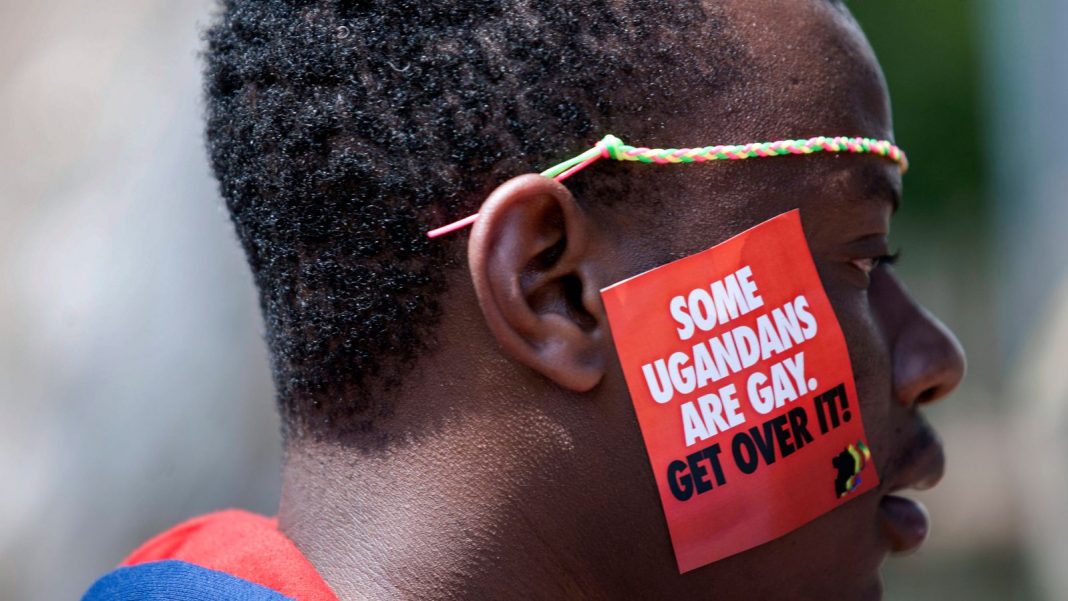A man is the first in Uganda to be charged with alleged “aggravated homosexuality”, and could face the death penalty if convicted.
The offence was introduced in May as part of the country’s new anti-gay laws, some of the harshest in the world targeting the LGBTQ+ community.
Police said the suspect is a 20-year-old “peasant” from the eastern district of Soroti.
This content is provided by Spreaker, which may be using cookies and other technologies.
To show you this content, we need your permission to use cookies.
You can use the buttons below to amend your preferences to enable Spreaker cookies or to allow those cookies just once.
You can change your settings at any time via the Privacy Options.
Unfortunately we have been unable to verify if you have consented to Spreaker cookies.
To view this content you can use the button below to allow Spreaker cookies for this session only.
Click to subscribe to the Sky News Daily wherever you get your podcasts
He was charged on 18 August with having unlawful sexual intercourse with a 41-year-old man, according to court papers.
Aggravated homosexuality is defined as cases of same-sex sexual relations involving a minor and other categories of vulnerable people, or when the perpetrator is infected with HIV.
The charging document does not clarify the aggravating factor in the case. It says the offence took place at a sports stadium in Soroti, but provides no other details.
Same-sex intercourse could also lead to a life sentence under the rules brought in earlier this year, which have been widely criticised by Western governments and rights organisations.
Earlier this month, the World Bank said it would not consider making any new loans to the country because of the law.
Ugandan President Yoweri Museveni accused the bank of using money to “coerce us into abandoning our faith, culture, principles and sovereignty.”
Read more:
Parents banned from protesting against LGBT lessons
Sunak apologises to LGBT veterans
President Yoweri Museveni
A group of UN experts called the laws “an egregious violation of human rights,” while Amnesty International has called it “draconian and overly broad”.
Anyone convicted of attempted aggravated homosexuality can be imprisoned for up to 14 years under the law.
The legislation did not outlaw anyone identifying as LGBT, which had been a key concern for activists who campaigned against an earlier version of the reforms.
Homosexuality is against the law in more than 30 of Africa’s 54 countries.
In Nigeria, one of the countries where it is banned, police said they had arrested at least 67 people celebrating a gay wedding in one of the largest mass detentions targeting homosexuality.







